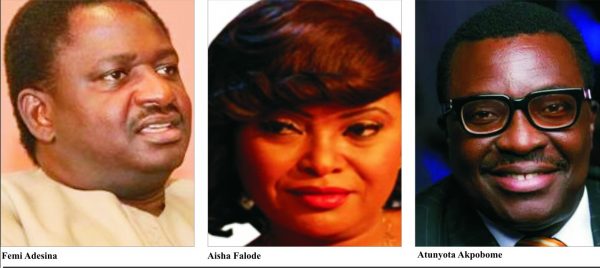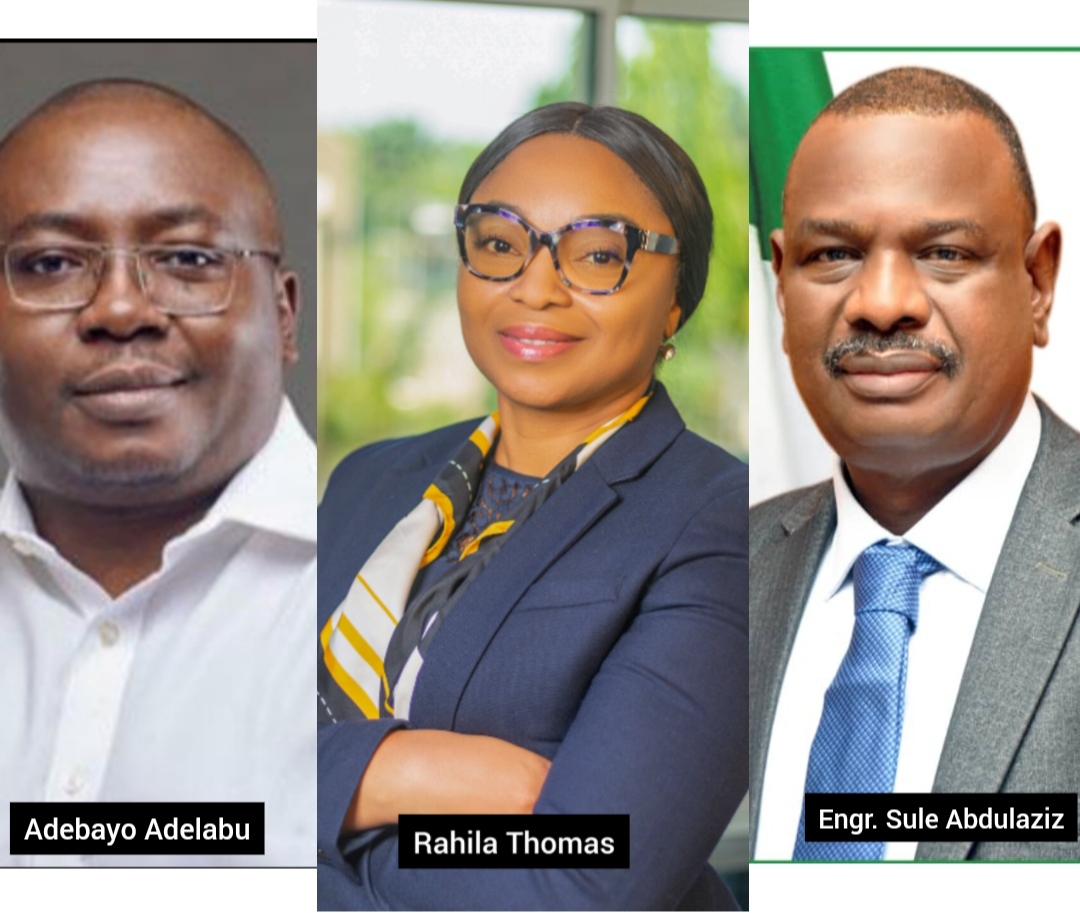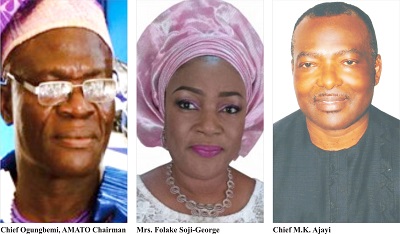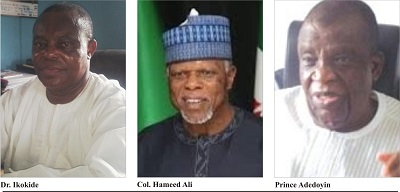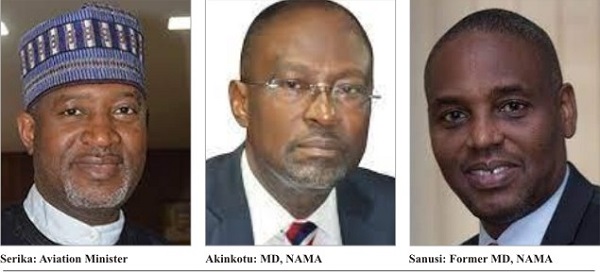Economic Benefits Of Marketing The Brand ‘Nigeria’
By Oyeniyi Iwakun
The image perception of Nigeria among comity of nations in the world has remained awful over the years. The nation’s integrity has been soiled as a result of so many avoidable incidents that have had direct and indirect negative impacts on the lives its citizens and the world at large. Corruption and Insecurity are common phenomenon attributed to Nigeria and has raised concerns and skepticisms both within and outside Africa.
The clientele nature of the land, where political corruption and ethnicity has become a culture is perceived to have subjected an average Nigerian to vulnerability of illicit and illegal deals, making most nations and foreign investors, especially of the developed world reluctant to engage in businesses with Nigerians and even the government itself.
In fact, our maritime domain is adjudged to be the most dangerous in the world that extra charges are demanded for cargoes designated for Nigeria. Meanwhile, some experts and stakeholders have argued that Nigerian state is not as ugly as it is being painted by both the local and international media. In fact, they argue that Nigeria is not as corrupt and crisis ridden as some corrupt western Nations who have been able to outsmart the world by managing their images effectively via a jealous information concealment/image management model. Most foreign media don’t report the ugliest occurrences that are seen to be detrimental to the image of their countries. Yet, they make headlines out of related anomalies in Nigeria even as in some cases they are part of the causes of such bad occurrence.
Therefore, the need for government and the governed to explore measures to rebrand the image of Nigeria so as to secure a legitimate place in the political, economic, religious and social space in the globe cannot be overemphasized.
Speaking at a recently held event on the probable strategies for marketing the brand Nigeria in Abuja, a Nigerian famous and popular sports journalist, Aisha Falode opined that Nigeria can maximize the inbuilt potentials of the youths in redeeming the nation’s image. Aisha who noted that the youths are mostly engaged in sporting activities especially football posited that federal government could leverage on the outstanding performances of the youths in these areas to market the nation’s image, taking into cognizance that sport is a major event that always bring Nigerians together harmoniously irrespective of culture, ethnic backgrounds and religious affiliations.
“The asset we have in our youths is a major asset that can be channeled through various platforms. The Russian 2018 world cup is going to be having 4 billion viewers across the globe; we had 3.2billion in Brazil 2014. The Super Eagles of Nigeria is our own biggest brand. I am here talking as a member of the Executive Committee of the Nigeria Football Federation (NFF). It is not easy to qualify from 204 nations across the world that makes the FIFA family to be among the 32 greatest football nations in the world. Nigeria is going to be part of that thirty two.” She said
Aisha who drew inferences from the former South African experience, where president Nelson Mandela united his racially divided nation and projected it into global legitimacy through the 1995 Rugby World Cup final despite the uncertainties that followed the apartheid regime in South Africa and also influenced the 2010 world cup with his personality and charismatic qualities, argued that there are eminent Nigerians whom the government can tap into their global acceptance to market Nigeria to the world.
“Dr. Nelson Mandela inherited a nation that was divided along racial lines, with an economy that was brim with suspicion between the whites and the blacks. The first thing Madiba did was to use the occasion of the first Rugby world cup, held in South Africa to unite South Africa and sell her to the rest of the world as a country that has come out of the apartheid regime. He also did the same after successfully bidding for the African cup of nations in 1996 where he wore the jersey of the Bafana Bafana, South Africa National Football Team and that was the only time South Africa played in the finals and won it.
“Another example is the 2010 world cup, we knew that it wasn’t easy for South Africa to have bided alongside England and other advanced nations of the world. The charisma of Madiba that has become a marketing tool for South Africa played a significant role in 2010 world cup. I could remember the level of skepticism everywhere but South African government did something that was unique. They gathered over 100 journalist from across the world and I was among the entourage and they took them on tour visiting tourist centers, hotels, amusement parks and other facilities and the world perception changed that south Africa would be hosting a world cup that is going to be credible and unique in an Africa way.” She said
The veteran journalist frowned at the federal government’s failure to explore the advantages created by its talented youths who are scattered all over the world to market its brand, citing the most recent example of patriotic Nigerian ladies who personally registered themselves to represent Nigeria at the Pyeongchang 2018 Winter Olympics but at the end of the day didn’t get the expected motivation and projection from the Nigerian government despite their global acceptance.
“We have three Nigerians who have done what others haven’t done before not only in Nigeria but the whole of Africa. They are the biggest brand that Nigerians have to market Nigeria. I am talking about the bobsleigh team, Seun Adigun, Ngozi Onwumere and Akuoma Omeoga.
“We also have another Nigerian, Simidele Adeagbo . She completed her historic Olympic journey on Saturday as the first Nigerian, African and Black female to compete in the Skeleton at the Winter Olympics. Adeagbo had the 4th fastest start time overall with 5.06 and a best down time of 53.73 seconds.
“Anthony Joshua is doing well in the world heavyweight championship, Wizkid and others are doing well in Music. They have featured in all global news networks including the time magazine but I don’t even see what we are doing to latch on their marketing strength and the grounds they have broken. The world economies now are moving away from traditional professionals to the irregular sectors: technology, entertainment, Music comedy. Government should see how we can channel the strength of our youths” she explained
Also contributing to the debate, a veteran actor and comedian Atunyota Akpobome popularly called Alibaba bemoaned the neglect of our cultural antiquities and tourist facilities which would have been formidable tools for boosting the nation’s image and economy. In his opinion, the government has performed below expectations in terms of creating enabling environment and promoting innovations and skills development. He said the Nigerian government doesn’t honour and recognize its talented and outstanding citizens even when other nations acknowledge and honour them
He opined that it would have been more advantageous for the country if government develops its natural environment to tourist centers and also internationalizes major festivals that attract viewers across the world even as he said government has no plan to improve the entertainment industry in Nigeria as against insinuations and beliefs by some Nigerians that the National theatre was built by the Federal Government for that purpose.
The seasoned comedian advised that what government needs to do with the entertainment industry is to be intentional and not reactionary to it even as he said government must take a cue from other nations that have recorded successes in these areas.
He said “The National theatre was built because Nigeria was disengaged from the international communities and the then military government felt Nigeria had a lot of money, hence the idea of celebrating the black cultural festival. The edifice is hanging today and the land around it has gone down because it was a rushed job used in accommodating the backs cultural festival without any sustainability plan.
“When our actors want to shoot movies at locations that will market Nigeria, you will see how Nigerian police would stop them. You can imagine when someone stops you from taking pictures at National theatre. They failed to realize that you are projecting the place.
“Argungun festival still remains Argungun festival; there is no plan to make it international. People outside the country are always willing to witness the festival.
“It costs 600 Dirham to climb camel in Dubai and it’s not the case that you will be allowed to run with it aside moving from one point to the other and disembark. At the end of the day the camel would have walked about 300 people. If you multiply 600 Dirham by 300 you can imagine how much they make every day and there are several of them across the desert. We have chimpanzees and gorillas in Nigeria but we don’t have zoos where people can visit to see them.
“The pyramid of Egypt had been built for decades ago and people are still making money from it.
“If few people could start Olympics and make it globally acceptable, Nigeria could start something in the areas of Desert sports with features like Horse race, Camel Race and others.
“Prof. Wole Soyinka has attained prominence for several years at the International space before we even talked of recognizing him at home. It is only someone who won election that is given National honour. If a shirt has New York designed on it, people will quickly buy it but can’t our shirts have National Theatre, Olumo Rock, Aso Rock, Wole Soyinka and others?. What are we doing to stop de-marketing Nigeria? As soon as Trump started de-marketing the USA, they started a strong campaign to maintain to image” he concluded
In his contribution, the Special Adviser to the president on Media and Publicity, Mr. Femi Adesina frowned at the manner of laying too much emphasis on government when it borders on national issues of projecting the Nigeria image. To him there is need to explore what individuals can do to enhance the marketing of the brand Nigeria. He pointed out that the media, social and conventional and even Nigerians spread more negative news than positive ones about the country which he felt wouldn’t go well with selling the image of the country.
“I observed that there is too much on the government on what the government needs to do, and what the government hasn’t done not the people. I can tell you today that the big problem of the management of the brand or the perception about Nigeria rests on the people.
“In the past few weeks, if you see the champion we have got about a snake swallowing N36million, but did we get that for JAMB refunding N7.9Billion to government? No! But we can promote information that a snake swallowed 36 million and it is all over the world and who are the ones behind this it is the people.
“When we talk about the team marketing Nigeria, everyone must be involved; the government, private sector and the people. Each has to play its part. It is very important. The government has sent a goodwill message to the bobsleigh team, is it government that will continue to market them? It is the private sector. Already we have been complaining that there is too much of government in our lives, we cannot continue to expect too much of government in our lives like that.
“Last year, the foreign reserve dropped to about $23Billion and we set a target that we would increase it to $40billion this year but by January we have met our target that we set for the whole year with $42billion in the foreign reserve. Has it gone viral? Not much.
“Even the National Berau of Statistics (NBS) talked about millions of job losses in the last two to three years, do you know how much job that has been created through rice farming? As at 2015, there were about 6 million rice farmers but today there are over 12.5 million rice farmers in Nigeria according to Rice Farmers Association of Nigeria. That means over 6 million jobs have been created and when the rice farmers association comes say this, we don’t hear about it.
“When we go abroad to make road shows on Investments drives, those people will make their conclusions based on what they hear from Nigerians, not what they hear from the government. The problem with Nigeria is internal de-marketing; Nigerians are de-marketing Nigeria. They think they are hurting the government, but they are hurting the country”, Mr. Adesina said
When quizzed on the initiatives and deliberate strategies set by government whether on short term or long term sustainability basis to boost orientation drive, Femi Adesina said nothing is currently put in place for that purpose. He explained that it was owing to the numerous problems met on ground by the current administration of President Muhammadu Buhari even as he opined that it high time that government created such environment to market the brand Nigeria.
Copyright MMS Plus.
All rights reserved. This material, and other digital content on this website, may not be reproduced, published, broadcast, rewritten or redistributed in whole or in part without prior express written permission from KINGS COMMUNICATIONS LIMITED.

